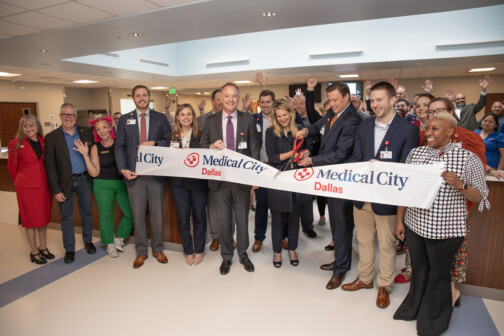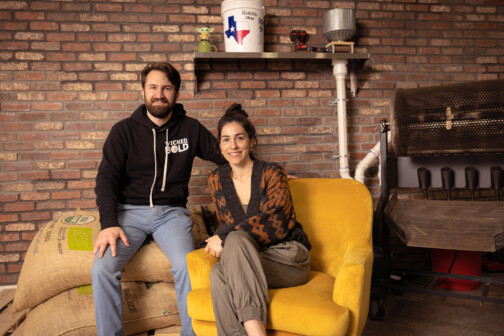Today’s healthcare providers must contend with the nuances of health reform while managing age-old concerns of patient care. Several DFW healthcare projects demonstrate how facility design can help healthcare organizations strike the balance of delivering care both efficiently and well.
New reimbursement and delivery models, such as accountable care organizations, health insurance exchanges, Medicaid expansion, the patient-centered medical home, and integrated delivery are all part of the latest healthcare paradigm. Empathetic facility designs address these issues along with patient and staff safety, the cost of care, facility adaptability, and speed to market.
The acute care hospital and multispecialty clinic being developed in Frisco by Texas Health Resources and UT Southwestern Medical Center is a prime example. The integrated health campus will give patients easy access to a network of services ranging from primary care to specialized medicine in one convenient location. The campus design will not only consolidate care for patients, it will facilitate collaboration between the area’s largest physician network and a major academic medical center, a partnership geared for quality and efficiency.
As in several such recent projects, the design leverages advanced information technology to free the campus from many traditional constraints. For example, the IT infrastructure provides regional connectivity, allowing UT faculty members to practice telemedicine and extend the reach of the campus into even remote areas of rural Texas.
In a departure from the traditional hospital model, which focused on treating sick people, the new campus is designed to be a health facilitator, with an emphasis on health education and wellness. This idea is borne out in features ranging from environmentally conscious building equipment and materials to walking trails that are incorporated into the landscape design. The project is meant not only to integrate health care services on campus, but to integrate the campus itself, and the health and wellness practices it espouses, into the life of the community.
The health facilitator concept is a natural extension of the medical field’s continued shift to outpatient care. Outpatient facilities lower the cost of healthcare delivery, are easier for most patients to access, and allow for the integration of primary, specialty, health education and wellness services. The Parkland Outpatient Clinic Building, a consolidated primary and specialty care center scheduled to break ground in Dallas later this year, is one such project. HKS designers are working with Parkland to create a human-centered facility that will provide one-stop shopping for family and individual healthcare needs.
Specialty centers for cancer care, musculoskeletal health and sports medicine, behavioral health, community health, education, and social services can fulfill the unmet needs of niche markets in a community. Texas Scottish Rite Hospital for Children’s new North Campus in Frisco is the hospital’s first venture away from its main campus, which is located in the heart of central Dallas. The North Campus will provide services where they’re needed in a high-growth area. The project includes orthopedic clinics and an outpatient surgery department, as well as a state-of-the-art sports medicine center. The campus will house an educational outreach program focused on athletic safety in schools and youth sports leagues. It will include playing fields, outdoor trails and a playground open to patients and the public.
True Worth Place, Fort Worth, is a community center that includes a clinic where people experiencing homelessness can access medical, dental, rehabilitation and behavioral health services. Behavioral healthcare is one of the country’s largest growing needs, one that has long been underfunded by the healthcare system. Facilities like True Worth Place and the new facility planned for Rusk State Hospital address this important issue and its effects on local communities.
HKS recognizes five stakeholders in every project we design: the owner, our collaborators, the earth, the building’s users, and the community it serves. Considering all of these stakeholders in design and delivery enables facilities to be completed better, faster, and cheaper—the holy trinity of today’s healthcare market. In DFW and across the country, facility design is rising to meet the challenges of a new healthcare environment.
Jeffrey C. Stouffer, FAIA, ACHA, is executive vice president and health group director at HKS.





